Existing User Log In
New User Registration
Register for a free account to gain full access to the VGChartz Network and join our thriving community.



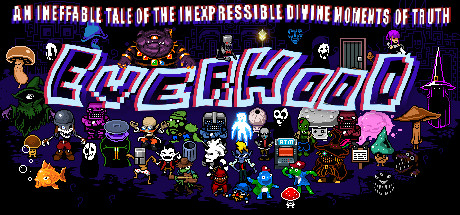

America - Front
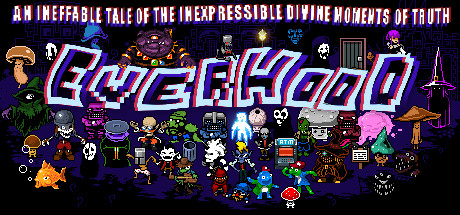

America - Back

Chris Nordgren
Jordi Roca
Role-Playing
 (Add Date)
(Add Date) (Add Date)
(Add Date) (Add Date)
(Add Date)
| Owners: | 0 |
| Favorite: | 0 |
| Tracked: | 0 |
| Wishlist: | 0 |
| Now Playing: | 0 |
Until recently, I had very little regard for indie games. I tended to believe that the majority of them were benign, banal experiences praised by generations too young to have any context regarding the source material that inspired their creation. They were a garnish surrounding the AAA steaks of the day, scraped from my plate with no thought as to their true value. Thanks to Everhood, I have returned to reality with a more health-conscious perspective. From the story, characters, old-school presentation, and difficulty, to the amazing soundtrack, supplementary material, and refreshing combat, the wealth of content to be discovered is as impressive as the modest price tag.
From its opening moments onward, Everhood is immediately evocative of the legendary Square role-playing games of yore; fans of Final Fantasy, Secret of Mana, Chrono Trigger, and Super Mario RPG will instantly feel right at home. Undertale's contemporary influence upon the aesthetics is equally recognizable. Combined, this indicates a level of quality well beyond what one might expect from a game bearing the 'indie' classification, and there's no better example of this than the writing.
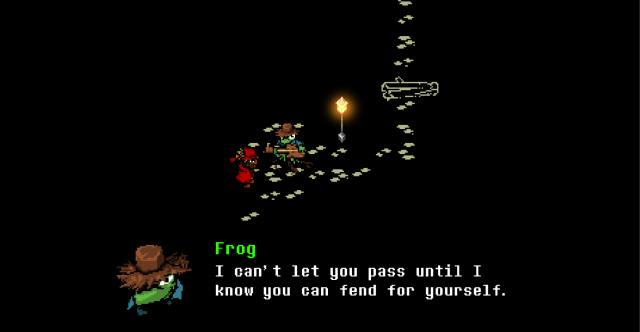
Without spoiling too much, Everhood's biggest surprise comes from its story. Upon awakening in a desolate forest, a spirit inhabiting the body of a doll discovers that its arm has been stolen. Aided by the mysterious Frog and the double-crossed, disgraced Blue Thief, 'Red' and 'Blue' (each Geno-esque in their own respects) embark on a journey to recover their stolen limbs from the nefarious Gold Pig. What initially comes off as 'cute' or 'quaint' becomes the star of the show. Ideas such as the futility of immortality, the curious gift death can provide, or the value of a limited existence are unexpected yet welcome; their complexity is generations ahead of the graphics. It's not very often I claim a game is worth playing solely based on its story. In this case I would make an exception, but I don't have to because the rest is equally as engaging.
Like any classic style RPG, there are two basic modes of play in Everhood. The first is the tried-and-true overworld layout where players direct Red through the environment, interacting with various NPCs and progressing through the adventure. Much of the success here rests on the shoulders of the characters met throughout each world, and to say it follows through in this respect is an understatement.
Sir Lost-a-lot is a loving homage to Arthur from Ghosts N' Goblins and Solaire from Dark Souls, though he remains an entertaining, legitimate entity in his own right. The snot-nosed Noseferatchu seems like a throwaway gag; by the time he invites Red over to play Smega and is encountered in the V.I.P. lounge, he becomes a dear friend who you hope is around the next corner. Gold Pig is antagonistic to be sure, but the 'snouting' text-based dialogue and goofy rationale for his actions exude a charm that belies the gravity of his decisions. Almost everyone met along the way is worth talking to at least twice - even the save points and world doors have personalities.
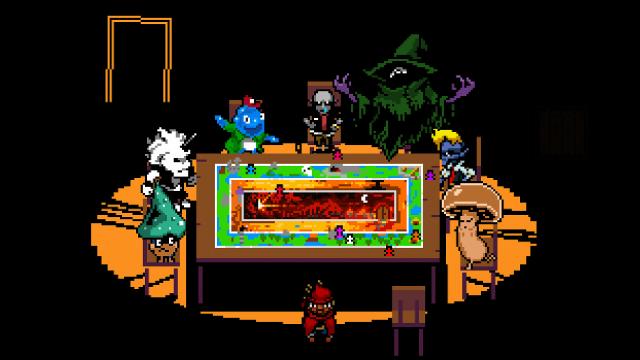
Enemy encounters trigger Battle Mode, and it's here that Everhood confidently stands on its own with a unique system that could easily become the staple for a potential series. To the uninitiated, the fret-based lanes and colored obstacles give off the impression of being a rhythm game along the lines of Guitar Hero or Hatsune Miku. This soon gives way to its true nature as a chaotic, bullethell shooter ala Ikaruga, as Red dodges, leaps, and rolls from harm. Mechanics introduced later on build off this initial core, but ultimately the combat in Everhood is reliant on the skill of the player.
While rhythm is important, it takes a backseat to sharp eyes, twitch-based reflexes, and above all else a killer instinct. Certain attacks erect barriers that impede the player's ability to jump, forcing them to move elsewhere; others emulate laser beams or magical spells to great effect, congesting lanes with a constant barrage that must be endured. Almost every fight is intense fun and it remains that way until the very end.
As quickly as Everhood establishes its own conventions, it doesn't hesitate to subvert or completely disregard them on a whim. A personal favorite is a boss fight that doesn't transition to the battle screen, but still plays out in a similar fashion. Clever puzzles make appearances in the overworld, gradually integrating themselves into several encounters. Be sure to heed the advice of your friends, lest you succumb to the spider's curse or the entity inside the mines. The less said about the psychedelic sections the better- if only because I lack the words to accurately describe them. When afterimages of Red start to smear across the screen as you're playing upside down and backwards... all I can say is that it's the gnomes' fault and I think they're conspiring with the mushroom people!
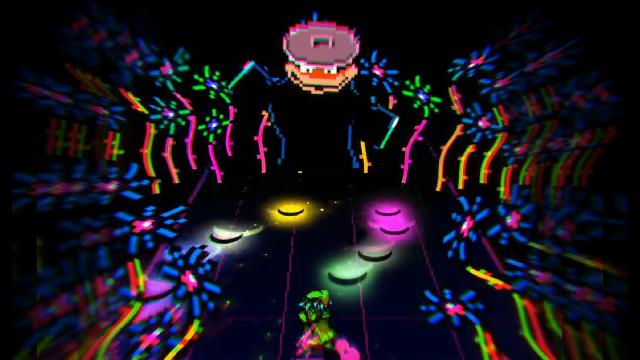
Despite being relatively short, Everhood does an excellent job entertaining players with a healthy amount of variety that keeps the game fresh. Learning 'Absolute Truths' can be surprising food for thought, especially when they start going against each other. A trade scenario reminiscent of The Legend of Zelda extends to the farthest corners of the Cosmic Hub (an equivalent of Chrono Trigger's End of Time) in search of cake or the obscure 'batteries'. Super Racket, along with a Dungeons and Dragons-inspired board game, gives the ability to deflect attacks back at opponents, subtly training Red for the eventual task at hand. The biggest highlight comes from Carnival World's main attraction: a racing mini-game in the vein of Sega arcade mainstays Hang-On and Outrun.
New Game+ awaits those of us who can't get enough, serving the main story in a more profound way than usual for modes of this type. The amount of content is simply impressive; each discovery makes one all the more curious about what else is out there.
The last aspect of Everhood worthy of mention is the soundtrack. Led by co-creator Chris Nordgren and built by committee through a number of artists, the end result is a resounding success. Characters like Frog and Zigg wield their signature themes with pride; should law enforcement attempt to pull me over during 'Vampires Invading Heaven', I might just keep right on driving. Best of all, the music isn't restricted by the art style. Some tracks would fit perfectly in a SNES-era title, others extend far beyond that scope and it all comes together wonderfully. With a whopping 96 listings on the official soundtrack (not counting omissions), there's something for everyone to enjoy.
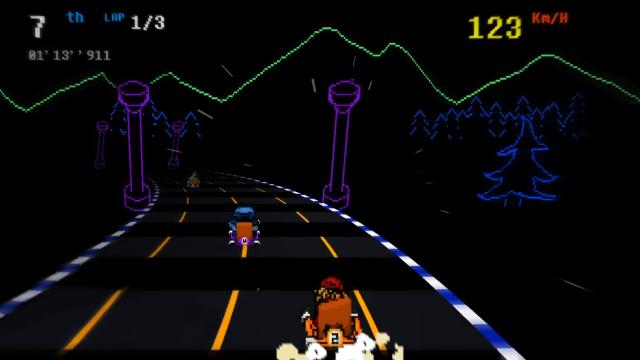
As much as I can fawn over Everhood for all its merits, admittedly there a few issues that could hold it back in the eyes of others. Foremost among them is the relentless difficulty. Make no mistake - this is one challenging video game. Hard is the recommended setting, with three below it and two above. These can be changed at will during almost any encounter, with bittersweet results. The amount of accessibility is certainly to be commended, but the ease of this access can adversely harm the overall experience. It's far too tempting to tone things down when a situation gets out of hand, instead of adapting and overcoming like Everhood wants.
With little (if any) reprimand for doing so, the lure can be tough to resist. I love a good challenge to bash my head against, but I'm not most people and everyone I've introduced to the game has struggled with the default settings. Checkpoints are introduced early on, though occur so infrequently they almost seem like a tease. A 'practice mode' of sorts could help solve these problems, because while I do agree with Foreign Gnomes and their 'git gud' philosophy, I'm also wearing socks with Rue McClanahan's face on them. Should you step foot inside Everhood, get ready for a fight.
Other blemishes exist, but are at worst an annoyance. Load times are prevalent, most notably when re-attempting a fight. Being completely obliterated is embarrassing enough; having to wait 15 seconds between attempts offers plenty of time to glare at the screen and marinate in a salty brine. The amount of typos and grammatical errors is concerning. Fierce debate rages within my inner circle about how much of this was intentional, but considering that that circle consists of two men and a cat, we're still not sure what to make of it. I'll also never understand the decision to map running to double-tapping in a certain direction, instead of the standard 'hold B' or 'click L3'. What may appear completely innocuous becomes an unnecessary strain that makes some instances more frustrating than they're supposed to be. Fortunately, most of these contentions could be fixed with a simple revision. Whether or not this happens remains to be seen, but that's the worst of it and it isn't too much to worry about.
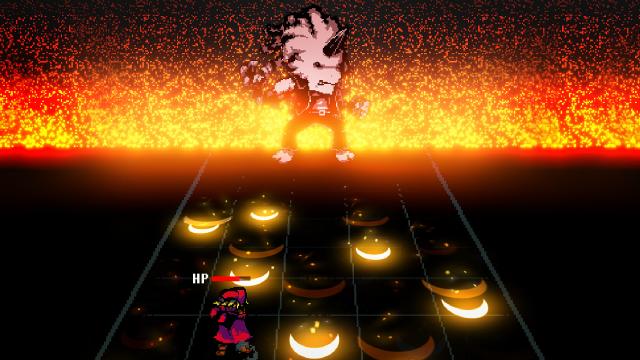
There's a legitimate chance that Everhood could end up as my personal Game of the Year. If Resident Evil Village or Ratchet and Clank underwhelm, if Horizon: Forbidden West and Final Fantasy XVI get delayed, if the sequel to Breath of the Wild releases next year... Granted, there are quite a few 'ifs' there, but it could happen. If there was any time, it would be at the start of a new generation, if there was an era, it would be in this - our brave, new world. As I stare at the white monolith towering before me, I've seen the moments we've already had together along with those that have yet to come. But there's something satisfying knowing that no matter how powerful it is or the amount of clout it carries, it can still be brought down to the foundation by two ambitious people with a vision. This level of quality, love, and genuine dedication is the exact thing that the gaming industry should be supporting. I usually won't tell someone to buy a game, but let me put it this way: if you happen upon me out in the wild and have a Switch in tow, I'll consider purchasing you a copy.









